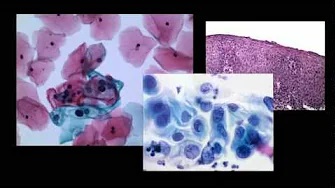Document Type
Article
Publication Date
1-1-2022
Abstract
CONTEXT.—: Pathology studies using convolutional neural networks (CNNs) have focused on neoplasms, while studies in inflammatory pathology are rare. We previously demonstrated a CNN that differentiates reactive gastropathy, Helicobacter pylori gastritis (HPG), and normal gastric mucosa.
OBJECTIVE.—: To determine whether a CNN can differentiate the following 2 gastric inflammatory patterns: autoimmune gastritis (AG) and HPG.
DESIGN.—: Gold standard diagnoses were blindly established by 2 gastrointestinal (GI) pathologists. One hundred eighty-seven cases were scanned for analysis by HALO-AI. All levels and tissue fragments per slide were included for analysis. The cases were randomized, 112 (60%; 60 HPG, 52 AG) in the training set and 75 (40%; 40 HPG, 35 AG) in the test set. A HALO-AI correct area distribution (AD) cutoff of 50% or more was required to credit the CNN with the correct diagnosis. The test set was blindly reviewed by pathologists with different levels of GI pathology expertise as follows: 2 GI pathologists, 2 general surgical pathologists, and 2 residents. Each pathologist rendered their preferred diagnosis, HPG or AG.
RESULTS.—: At the HALO-AI AD percentage cutoff of 50% or more, the CNN results were 100% concordant with the gold standard diagnoses. On average, autoimmune gastritis cases had 84.7% HALO-AI autoimmune gastritis AD and HP cases had 87.3% HALO-AI HP AD. The GI pathologists, general anatomic pathologists, and residents were on average, 100%, 86%, and 57% concordant with the gold standard diagnoses, respectively.
CONCLUSIONS.—: A CNN can distinguish between cases of HPG and autoimmune gastritis with accuracy equal to GI pathologists.
Recommended Citation
Franklin MM, Schultz FA, Tafoya MA, Kerwin AA, Broehm CJ, Fischer EG, Gullapalli RR, Clark DP, Hanson JA, Martin DR. A Deep Learning Convolutional Neural Network Can Differentiate Between Helicobacter Pylori Gastritis and Autoimmune Gastritis With Results Comparable to Gastrointestinal Pathologists. Arch Pathol Lab Med. 2022 Jan 1;146(1):117-122. doi: 10.5858/arpa.2020-0520-OA. PMID: 33861314.

